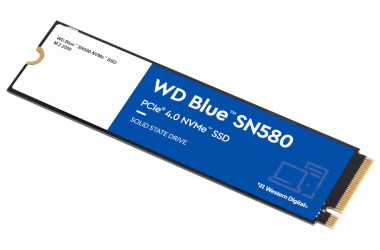
October?s flooding of Thailand has knocked out close to half of the global hard disk manufacturing base. Normalcy will take another six months and a lot can change in the industry along the way.
The large scale flooding in Thailand in October 2011 has affected 20% to 30% of the global manufacturing capacity of hard disk drives. In the first half of 2011, Thailand’s captive hard disk manufacturing base accounted for 40% to 45% of global production. With nearly half of the capacity at the Thailand’s twelve major plants compromised, IDC released a statement indicating, “Damage to the hard disk drive industry is significant and this will have a direct impact on worldwide PC shipments through the first half of 2012.” IDC also indicated that hard disk supply shortages will start in November 2011 continue into Q1 2012. Other independent consultants have stated that Thailand’s flooding will be more disruptive to global IT supply chains than Japan’s March 2011 Tsunami.
Thailand’s industrial areas are home to 60% of Western Digital’s global hard disk manufacturing capacity. And with compromised local industrial output, ”Our outlook for the current quarter ending in December is 22 to 26 million drives, compared to 58 million shipped in the September quarter”, says Daniel Mauerhofer, Head of Public Relations, EMEA and India at Western Digital Germany.

While Western Digital’s hard disk production plants may have been directly affected, it is also the production plants of IT component suppliers that have been compromised. Says Girish Kewalramani, Deputy Vice President of FDC International: “The flooding in Thailand has affected production of IT components on a large scale. And this has created a regional short supply of hard disk drives against reasonably high demand.”
Seagate’s two production plants at Teparuk and Korat have not been directly affected by the flooding. But Seagate’s local component suppliers have been compromised leading the vendor to announce that its production of hard disk drives in the last quarter of 2011 would be affected. “Given the volatility of the situation it is unclear what the magnitude of the supply chain disruption will be to Seagate’s hard disk drive output from its Thailand operations. Seagate anticipates hard drive supply will be constrained throughout the current quarter,” was Seagate’s official statement.

Western Digital is also experiencing similar competent shortages. “Many of our component suppliers have been impacted, as well, leaving material for hard drive production and hard drive supply to customers considerably constrained,” says Mauerhofer.
Other significant component supplier manufacturers who have been affected by the floods to varying extents include Sanyo Semiconductor, Toshiba Semiconductor and Storage, Benchmark Electronics, Hana Semiconductor, Avago, Nidec Corporation and Emcore, amongst others. Electronic equipment manufacturers Panasonic and Sony have also been affected.
“The market started to suffer severe shortages in supply and manufacturers have revised their calculations to reflect this shortage. FDC has received, in some cases, letters from vendors with the Force Majeure clause,” explains FDC’s Kewalramani.
However, as per IDC, “The severity of hard disk shortages in the coming months largely depends on the industry’s ability to recover lost production capacity in Thailand.” However in spite of the recovery attempts by global vendors both hard disk drive and component supplies will remain compromised, and this will have varying impacts in the channels and the parent PC industry.

In the regional channel markets, resellers have begun to see significant changes in the hard disk sales dynamics. Soon after the onset of the crises, vendors started withdrawing stocks from distributors to re-prioritise inventory holding patterns with leading OEMs. This quickly led to partners speculating on withholding hard disk stocks leading to channel induced shortages. Resellers also reported that distributor pricing was slow and hesitant due to lack of clarity from vendors around cancellation of their orders, withdrawal of existing stocks and removal of sales rebates. As the situation has progressed into November 2011, partners claim that vendors are increasing their prices by 20-30% every week and the net resulting selling price has shot up by 80% to 150% of the pre-crises price.
In the region Western Digital is distributed by Redington Gulf, Metra and FDC International. Seagate is distributed by Redington Gulf, FDC International, Asbis and Almasa.
“Some vendors have already started revising their prices upwards. This was expected as supply has become short due to the floods,” says FDC’s Kewalramani.
“Limited component availability throughout the hard disk supply chain and efforts by manufacturers to bring systems back online as quickly as possible may have the effect of raising hard drive prices. Market forces along the distribution chain, which are outside the control of manufacturers, could also impact prices,” clarifies Western Digital’s Mauerhofer.
While there has been volatility in the availability and pricing of hard disk drives, these are mostly from on-going channel recovery operations, rather than any real shortage related issues. Most of the price and product swings are taking around the 30 to 45 days of inventory that has existed in the sell-through part of channel movements. “The full impact of the loss of production will really be felt in the next quarter”, says Harprit Singh, Managing Director, VIP Computers. Since the opening regional demand for hard disk drives in Q4 2011 was low, most of the vendor driven reverse logistics has been fulfilled by existing unsold stocks with resellers and where resellers did not have the cash reserves to hold onto their stocks into Q1 2012, at considerably elevated price points. “Once these supplies dry out, the situation will most likely worsen”, says Singh. Vendors are briefing distributor partners to plan for 40% to 55% of incoming hard disk units in comparison to the previous quarter.
Regional channel players expect hard disk supplies and prices to be tightly controlled by vendors for at least next two quarters until middle of 2012, after which operations may return to normal. Price points may remain elevated 30% to 40% higher than pre-crises price points for most of 2012, along with supply volumes down by 20% to 25% across most of 2012.
IDC expects global hard disk drive prices to increase as demand exceeds supply and manufacturers face increased costs for components, expedited shipments and shifting of production to new locations. The hard disk industry will begin to recover in Q1 2012, with pricing stabilising by mid 2012 and the industry running close to normal in the second half of 2012.
The volatility of hard disk pricing and availability of volume will also create a see-saw effect on the global PC industry. With most of the Q4 2011 PC production completed either at warehouses or in the supply chain or about to be completed with stockpiled component inventories, IDC does not expect the impact of the Thailand floods to be more than 10% in this quarter. It is only in Q1 2012 onwards, that the compromised production capacity will begin to show.
In the region, super retailers are still using their previous price list for PCs and laptops. “For now prices have remained stable but we are expecting to get new price lists from most brands once their model line-up changes before Dubai Shopping Festival in January 2012,” says Ashish Panjabi, CEO Jacky’s Electronics. Panjabi also expects price revisions to kick in with new PC stock lots.
With shortfall of hard disk volumes, large PC vendors will put increasing pressure on manufacturers to meet their requirement quotas on priority even at increased price points. “In response to the crisis, priority will be given to the large PC manufacturers that drive hard disk shipment volumes as well as to the high-margin products used in enterprise servers and storage,” says IDC. As an example, Dell is engaging on a daily basis with their hard disk suppliers to manage their end to end supply chain. In its latest global advisory, HP has downsized its next quarter revenue performance citing a range of factors including flooding in Thailand amongst other macros economic factors.
Since medium and small PC vendors will come under pressure, as well as low and entry level PC products, there is an opportunity to capture select enterprise accounts and accelerate consolidation in fast growing markets. Hard disk vendors can also look for opportunities to leverage their position with PC vendors through strategic partnerships.
The looming downside into 2012: Smaller PC companies with limited supplier leverage and resources, faced with escalating price points may run out of both customers and products to sell.
The possible silver lining in the cloud: High prices for hard disk drives into 2012 may bring them at parity with solid state memory storage and make them a viable option for PCs. Form factors for Ultrabooks may also get kick started.
==============================





